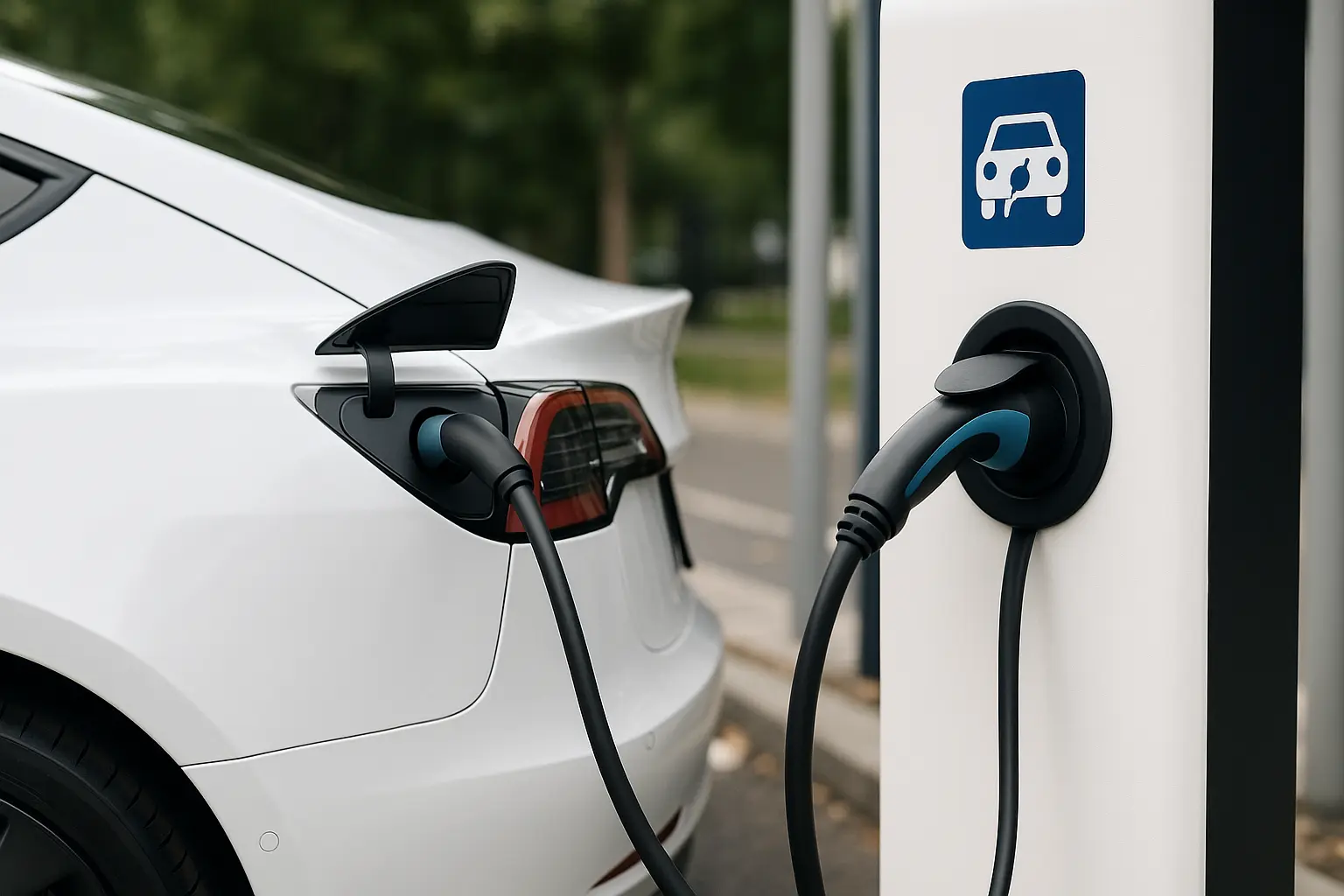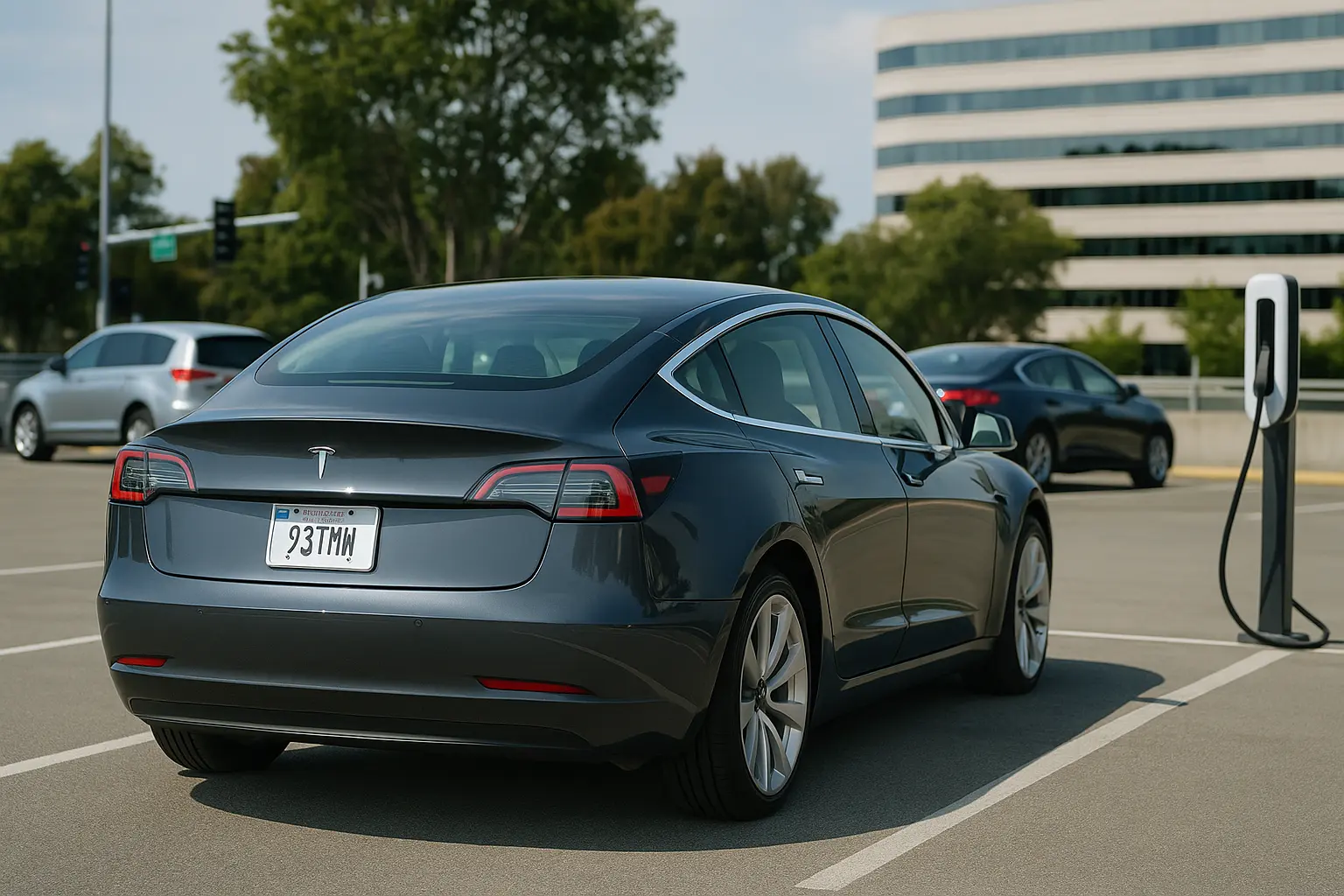Introduction: Why Rego Rules Matter More Than Ever in 2025

Every Aussie car owner knows the word Rego. It’s not just slang—it’s a vital part of vehicle ownership. In 2025, Australia’s car registration system is getting its most significant overhaul in years. From EV incentives and digital registration systems to stricter safety and emissions checks, rego rules are evolving fast.
Whether you're buying a new car, renewing your registration, or considering an EV, understanding these changes could save you money and keep you legal on the roads. This in-depth guide breaks down the 2025 rego updates you might have missed—and what they mean for Australian drivers.
Section 1: What Is Rego and Why the Rules Keep Changing
Before diving into 2025 changes, let’s get back to basics.
Rego is short for vehicle registration. Every vehicle on public roads must be registered with the relevant state or territory authority. The registration links the car to a licensed driver, ensures it's roadworthy, and includes compulsory third-party (CTP) insurance.
Why Rego Rules Are Changing in 2025
Several forces are driving change:
The rise of electric and hybrid vehicles
Digitalisation of government services
New environmental standards
Increased road safety focus
The need to standardise laws across Australia
These changes aim to simplify compliance, encourage sustainable vehicle ownership, and keep unsafe cars off the road.
Section 2: Key Car Registration Changes in 2025 – State-by-State Breakdown
Australia’s states and territories manage their own registration systems, but 2025 brings a push for national consistency. Here are the key updates by region:
New South Wales (NSW)
Digital rego system expanded with SMS and app alerts
Green Rego Discounts: Up to 50% off for EVs and plug-in hybrids
Mandatory odometer reading submission during renewals
New plate designs for electric and hydrogen cars
Victoria (VIC)
Rego waivers for first-time EV buyers (up to $1,000 value)
Mobile roadworthy inspections being trialled
Annual safety inspection now required for cars over 5 years old
12-month-only registration period removed—quarterly and 6-month terms allowed again
Queensland (QLD)
Emission testing introduced for diesel vehicles
Digital registration certificate now valid—no printed copy needed
Motorbike and scooter rego fees increased to match usage metrics
Light commercial vehicle (LCV) category revised to reflect payload, not just weight
Western Australia (WA)
Online rego transfer platform introduced
EV-specific rego fee categories added
New satellite tracking trial for fleet vehicles begins
Clearer guidelines on personalised plates and display location
South Australia (SA)
Transfer fees reduced for hybrid and EVs
Auto-reminder system introduced for renewals
Car subscription models included in rego classification
Compliance plate data must now be matched digitally with VIN records
Section 3: Nationwide Trends and Federal Push for Uniformity
While each state still manages their system, the National Transport Commission (NTC) and Federal Infrastructure Department are working to align rego rules by:
Introducing national digital vehicle identity (DVI) records
Encouraging a common emissions reporting platform
Standardising EV and PHEV rego discount eligibility
Developing a national road usage charge policy (to eventually replace fuel excise)
Digital Licence Plate Trials
Yes, digital number plates are being trialled in VIC and NSW. These plates:
Display rego status
Can be updated remotely
Will alert authorities if the car is unregistered
Expect these to become optional by late 2025 or 2026.
Section 4: How the 2025 Rego Changes Affect Electric and Hybrid Vehicles
EVs and hybrids are at the centre of many 2025 changes.
1. Discounts and Incentives
NSW: 50% off for full-electric vehicles under 2.5 tonnes
VIC: First-year rego waived for new EVs
QLD: 25% discount plus free green plates
WA: Separate fee tier for EVs and plug-in hybrids
2. Rego Type for Plug-in Hybrids
A new rule classifies PHEVs separately from hybrids and petrol vehicles. They may require:
Emissions compliance check
Charging infrastructure confirmation (in some cases)
3. Road User Charge (RUC) Preparation
While paused in many states, a per-kilometre road usage tax is expected to begin in some form by 2026 for EVs. Drivers may need to record odometer data annually as part of rego.
Section 5: Commonly Missed Rego Rule Updates in 2025
Even regular drivers miss some new rego rules. Here are overlooked updates:
1. Odometer Readings Required for Renewals
In VIC, NSW, QLD, and SA, drivers must now submit an odometer photo or entry when renewing registration.
2. VIN Verification Required for Used Imports
Grey imports or cars without Australian compliance plates must now be verified using VIN-matching digital records before rego can be granted.
3. Subscription Cars Now Require Proof of Shared Rego Liability
If you're using a car subscription service (like Carbar, Carly, or HelloCars), 2025 rules require that:
The driver is listed on the rego system
CTP insurance names both the company and subscriber
4. No More Paper Registration Notices
All states except NT and Tasmania are moving to paperless renewals. Email, SMS, and app-based reminders are now standard.
5. Caravans and Trailers Need VIN Recheck
Re-registration of old caravans and trailers requires a re-check of VIN and safety features (brakes, lights) before the rego is approved.
Section 6: Rego Costs in 2025 – What’s Changed in Pricing?
Base Fee Increases
Many states increased rego fees to adjust for inflation and infrastructure upgrades:
| State | Avg. Passenger Car Rego Fee (2025) |
|---|---|
| NSW | $350–$600 |
| VIC | $270–$560 |
| QLD | $300–$620 |
| SA | $290–$510 |
| WA | $270–$540 |
EVs generally get 25–50% discounts, depending on the state.
Additional Costs to Watch For
CTP Premiums: May vary based on age, location, and insurer
Stamp Duty: Now recalculated using fuel type in some states
Late Fees: Increased in VIC and QLD (up to $80 fine)
Section 7: How to Check and Renew Your Rego in 2025 – Step-by-Step
1. Digital Rego Portals (State-Based)
Most rego tasks can now be done online:
NSW: Service NSW App
VIC: VicRoads Portal
QLD: Queensland Rego Check
SA: EzyReg
WA: DOTDirect
2. What You’ll Need
Vehicle details (plate number, VIN)
Driver’s licence
Payment method
Odometer reading (photo proof in most cases)
3. Choose Your Registration Period
Most states now offer:
3-month
6-month
12-month rego cycles
Short-term rego helps budget-conscious Aussies but usually costs more in the long run.
Section 8: 2025 Rego Tips for Used Car Buyers
If you’re buying a second-hand car, here’s what to check in 2025:
Confirm the rego expiry date using a public portal
Check for rego suspensions due to unpaid fines
Look up any recorded write-offs using PPSR or state services
For EVs, ask if the road user tax is already logged with authorities
Always request digital proof of transfer via online platforms
Section 9: Rego Rule Impact on Different Vehicle Types
SUVs & 4x4s
Higher base rego due to weight and fuel consumption
Often subject to additional emissions testing in metro areas
4x4 accessories (bullbars, lifts) must be disclosed when renewing rego
Sedans and Hatchbacks
Generally lowest rego costs
Eligible for most EV or hybrid discounts
Often used in subscription fleets—check shared liability
Diesel Vehicles
Some states introducing emissions checks or surcharges
VIN-based emission class may now affect fee category
Luxury and Performance Cars
Higher stamp duty and rego base due to luxury car tax
Enhanced plate requirements (anti-theft, tracking) introduced in VIC and NSW
Section 10: What to Expect Beyond 2025 – The Road Ahead
1. Nationwide Digital Plate System
Within 2–3 years, digital plates may become optional for all new cars—displaying rego status and allowing police to track suspended vehicles.
2. Unified Road Usage Charge
To replace fuel excise, Australia may implement a nationwide kilometre-based tax, especially for EVs. Expect:
Annual odometer submissions
Possible GPS tracking opt-ins for fleet or high-mileage users
3. Subscription and Car-Sharing Rego Rules
Regulatory bodies are developing a new category for:
Shared cars
Peer-to-peer rentals
On-demand vehicle subscriptions
This includes new insurance and rego sharing obligations.
Conclusion: What Aussie Drivers Should Do Now
The rego landscape is changing fast. Whether you're behind the wheel of a petrol hatch, hybrid SUV, or shiny new EV, 2025 brings more digital systems, more compliance checks—and more chances to save if you know the rules.
Top Takeaways:
Check your state’s digital renewal tools
Watch for odometer requirements
Consider an EV or hybrid for rego savings
Always verify rego when buying used
Stay alert for changes in road user charges and digital plate rollouts
Leave a comment
Your email address will not be published. Required fields are marked *




















